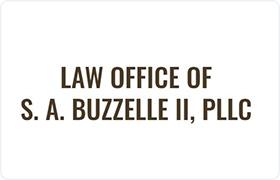Arlington Reorganization Lawyer, Arizona
Sponsored Law Firm
-
 x
x

Click For More Info:
-
Law Office of S.A. Buzzelle II, PLLC
14050 N 83rd Avenue Suite 290 Peoria, AZ 85381» view mapBankruptcy & Debt Law Your Trusted Bankruptcy Attorney
If you are in need of legal services for matters relating to bankruptcy and divorce, rely on Law Office of S. A. Buzzelle II, PLLC in Peoria, AZ.
800-873-4991
Not enough matches for Arlington Reorganization lawyer.
Below are all Arlington Bankruptcy & Debt lawyers.
Michael J. Fuller
✓ VERIFIEDEstate, Collection, Business, Contract, Litigation
In 1988, I started my own firm without any clients but with a steadfast commitment to practice law consistent with my own ideals and personality. I tr... (more)
Michael Zdancewicz
Estate Planning, Bankruptcy, Personal Injury, Business, Mass Torts
Status: In Good Standing
Kyle A. Israel
Estate Planning, Bankruptcy, Personal Injury, Intellectual Property, Business
Status: In Good Standing
Peter H Westby
Estate Planning, Employment, Business Organization, Bankruptcy
Status: In Good Standing
FREE CONSULTATION
CONTACTMichael Nicolas Chalhoub
Premises Liability, Criminal, Credit & Debt, Medical Malpractice
Status: In Good Standing Licensed: 9 Years
Michael Nicolas Chalhoub
Premises Liability, Criminal, Credit & Debt, Medical Malpractice
Status: In Good Standing
Lawrence P Karandreas
Consumer Bankruptcy, Bankruptcy Litigation, Credit & Debt, Collection
Status: In Good Standing Licensed: 36 Years
Michael E. Gerity
Bankruptcy & Debt, Estate, Intellectual Property, Business
Status: In Good Standing Licensed: 30 Years
 Stanley A. Buzzelle II Peoria, AZ
Stanley A. Buzzelle II Peoria, AZ Practice AreasExpertise
Practice AreasExpertise

